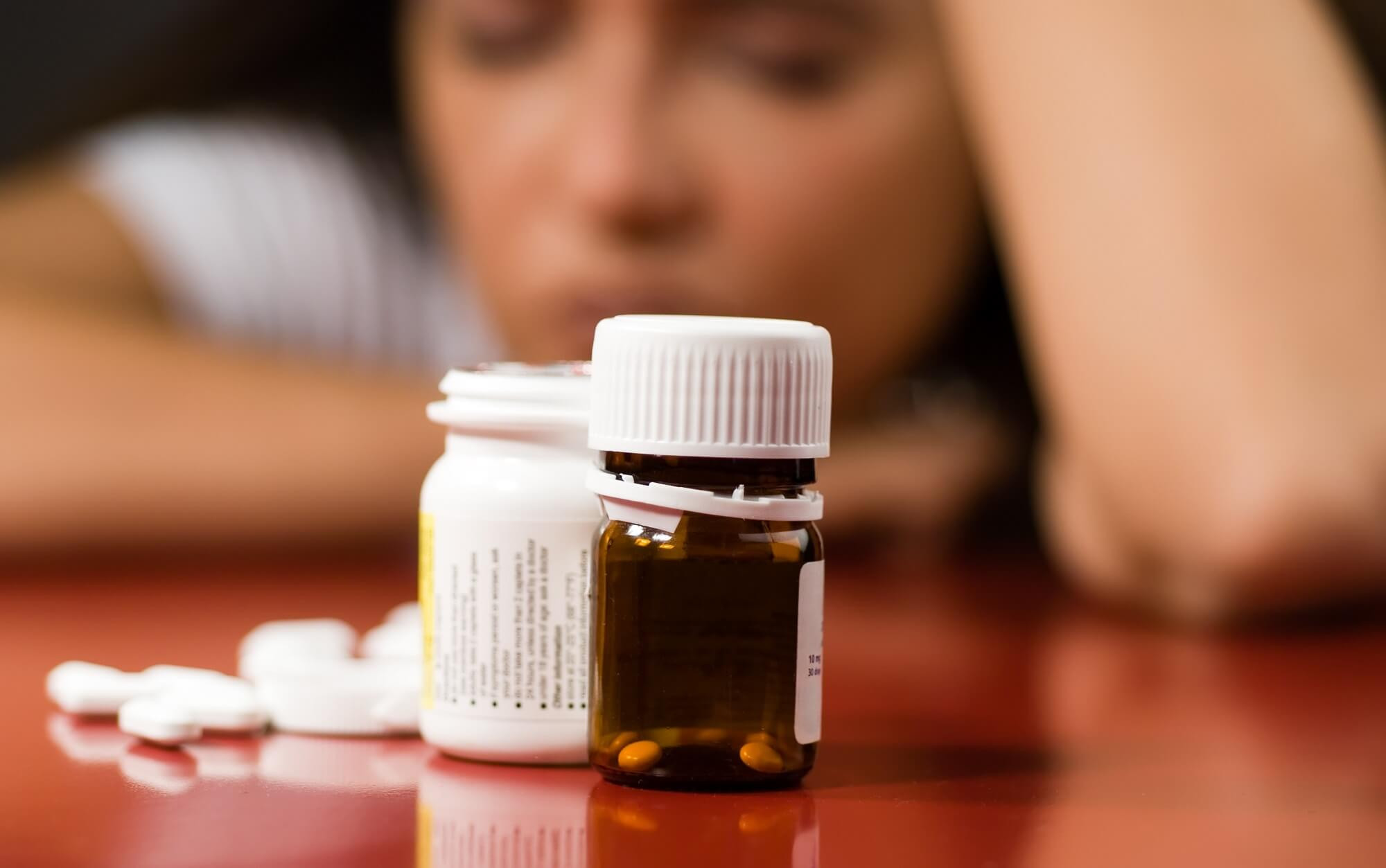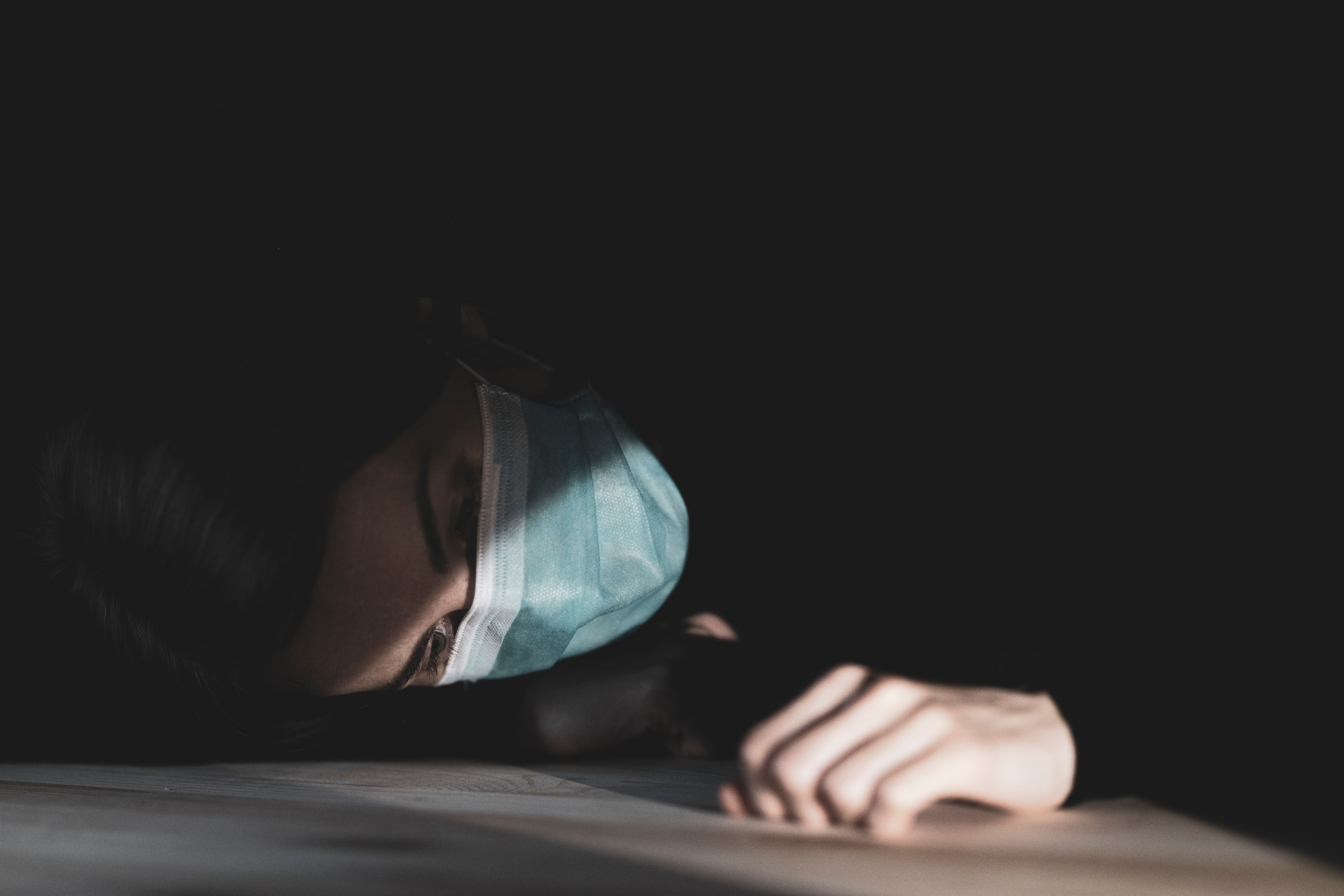Definisi
Depresi merupakan gangguan mood yang didefinisikan sebagai perasaan sedih, cemas atau kehilangan gairah hingga dapat mengganggu aktivitas sehari-hari. Depresi dapat mempengaruhi cara anda berpikir dan bersikap hingga mengakibatkan gangguan emosional. Hal ini kemudian dapat menyebabkan anda merasa bahwa hidup anda tidak berguna. Orang dengan gangguan depresi membenci dirinya sendiri hingga merasa kehilangan harga diri.
Angka kejadian depresi di dunia diperkirakan mencapai 3,8 persen atau 280 juta orang dari keseluruhan populasi dunia. 5 persen diantaranya dialami oleh orang dewasa dan 5,7 persen dialami oleh lansia berusia diatas 60 tahun. Pada stadium terburuknya, depresi dapat mendorong seseorang untuk melakukan bunuh diri, lebih dari 700.000 orang meninggal karena bunuh diri setiap tahun.
Penyebab
Penyebab terjadinya depresi dapat beragam dan memiliki kaitan yang kompleks antara aspek sosial, psikologis dan biologis. Penelitian menunjukkan bahwa gangguan pada senyawa kimia yang terdapat di otak memiliki peran signifikan terhadap terjadinya gangguan depresi. Terdapat perubahan fungsi dan efek pada neurotransmitter, senyawa yang membawa sinyal antar sel saraf, dan perubahan cara neurotransmitter bereaksi terhadap sirkuit saraf memiliki peran yang penting untuk menjaga stabilitas mood.
Selain itu, perubahan keseimbangan senyawa hormonal juga dapat menjadi pemicu terjadinya gangguan depresi pada seseorang. Umumnya, perubahan hormon terjadi pada kehamilan, selama masa nifas, dan orang dengan gangguan tiroid. Dewasa ini, banyak penelitian yang dilakukan dengan tujuan untuk menemukan adanya kaitan genetik pada orang dengan gangguan depresi. Hal ini dikarenakan gangguan ini juga banyak ditemukan pada orang yang memiliki riwayat keluarga dengan gangguan depresi.
Faktor Risiko
Depresi umumnya dapat dipicu oleh peristiwa yang dianggap sebagai hal menyedihkan atau traumatis pada perjalanan kehidupan seseorang, seperti kehilangan pekerjaan atau kehilangan seseorang yang sangat disayangi. Depresi dapat menyerang semua golongan usia. Namun, depresi lebih dominan ditemukan pada kategori usia dewasa.
Banyaknya orang dewasa dengan gangguan mood dan kecemasan kronis dimulai dari masa kanak-kanaknya yang menunjukkan kecenderungan kecemasan berlebih. Depresi yang terjadi pada orang dengan gangguan kesehatan lain dapat memperburuk kondisi seseorang. Tak jarang obat-obatan yang dikonsumsi dapat menyebabkan efek samping dan berperan dalam terjadinya gangguan depresi.
Gejala
Gangguan depresi pada masing-masing orang dapat menunjukkan gejala yang berbeda. Gejala yang muncul dapat bervariasi tergantung sesuai dengan tingkat keparahan gangguan depresi, frekuensi munculnya gangguan terjadi, dan onset gangguan tersebut terjadi. Berikut beberapa gejala depresi, diantaranya:
- Perasaan sedih, cemas, atau merasa “kosong”
- Perasaan putus asa, tidak berguna, dan pesimis
- Sering menangis
- Perasaan mudah terganggu atau mudah marah
- Kehilangan gairah termasuk pada hal-hal yang anda senangi
- Merasa mudah lelah
- Kesulitan untuk berkonsentrasi, mengingat, atau membuat sebuah keputusan
- Gangguan tidur
- Perubahan berat badan
- Nyeri berkepanjangan tanpa penyebab yang jelas yang tidak membaik dengan pengobatan (sakit kepala, nyeri otot atau sendi, gangguan pencernaan, keram otot)
- Pikiran untuk mengakhiri hidup atau menyakiti diri sendiri
Diagnosis
Penegakkan diagnosis pada depresi harus dilakukan dengan hati-hati dan cermat mengingat tanda dan gejalanya yang bervariasi pada masing-masing individu. Jika anda datang ke dokter, maka dokter akan menanyakan riwayat penyakit yang anda alami, riwayat keluarga dan riwayat keadaan sosial anda. Dokter akan berusaha untuk mencari penyebab utama atau pemicu yang menyebabkan munculnya gejala depresi pada diri anda.
Lebih lanjut, dokter juga akan melakukan pemeriksaan laboratorium untuk memastikan bahwa fungsi kelenjar tiroid anda tidak terganggu, mengingat gangguan depresi dapat disebabkan karena adanya gangguan pada senyawa hormonal yang ada dalam tubuh. Dokter akan melakukan evaluasi psikiatri untuk menilai tingkat keparahan gejala yang anda alami, diantaranya meliputi isi pikiran, perasaan dan pola perilaku anda. Anda mungkin diminta untuk mengisi beberapa kuesioner yang digunakan sebagai alat untuk membantu dokter menentukan diagnosis anda.
Tatalaksana
Depresi pada semua tingkat keparahan dapat diobati dengan baik. Prinsipnya, semakin cepat pengobatan dilakukan, semakin baik dan semakin efektif efek pengobatan terhadap pasien dengan depresi. Gangguan depresi umumnya diintervensi dengan pengobatan, psikoterapi, atau kombinasi dari keduanya.
Dokter dapat memberikan obat antidepresan sebagai pilihan utama untuk mengobati gejala depresi yang muncul. Obat-obatan antidepresan umumnya menunjukkan efek setelah 2-4 minggu setelah digunakan. Diawali dengan pemulihan konsentrasi dan siklus tidur yang membaik sebelum akhirnya meningkatkan mood. Dokter akan menyesuaikan dosis obat-obatan tersebut dengan kondisi dan gejala yang anda alami. Jika anda mulai menggunakan antidepresan, sebaiknya anda tidak menghentikan obat-obatan tersebut tanpa petunjuk atau saran dari dokter.
Beberapa jenis psikoterapi sederhana seperti “terapi mengobrol” atau yang lebih dikenal dengan istilah konseling dapat membantu orang-orang dengan depresi. Jika terapi pengobatan, psikoterapi, atau kombinasi dari keduanya masih belum efektif dalam mengurangi gejala yang timbul, terapi berupa ECT (electroconvulsive therapy) dan terapi stimulasi otak lainnya dapat menjadi pilihan bagi pasien dengan gangguan depresi.
Komplikasi
Depresi merupakan ganguan mental yang serius dan tidak boleh diabaikan karena berpotensi menyebabkan berbagai komplikasi. Salah satu komplikasi yang paling berbahaya adalah keinginan untuk menyakiti diri sendiri hingga keinginan untuk bunuh diri. Selain itu, orang dengan gangguan depresi umumnya juga mengalami masalah sosial dengan orang-orang di sekitarnya. Penurunan atau peningkatan nafsu makan yang berlebihan pada seseorang dengan gangguan depresi juga dapat mengakibatkan berbagai penyakit metabolik. Hal ini perlu menjadi perhatian bagi orang-orang di sekelilingnya agar lebih peka dan memberikan perhatian serta perlakuan yang sesuai untuk mengatasi gejala yang muncul pada orang dengan gangguan depresi.
Pencegahan
Depresi dianggap sulit untuk dicegah. Hal ini disebabkan karena sulitnya mengenali penyebab atau pemicu terjadinya gangguan depresi pada masing-masing individu dengan preferensi dan pengalaman yang berbeda mengenai peristiwa traumatis yang dialaminya atau berbagai hal yang dapat menyebabkan perasaan sedih atau kehilangan.
Jika anda pernah mengalami episode depresi, sebaiknya anda mulai mengubah gaya hidup untuk mengantisipasi gejala depresi yang mungkin muncul dikemudian hari. Beberapa perubahan gaya hidup yang dapat membantu anda untuk mengatasi gejala depresi diantaranya adalah rutin berolahraga, cukup jam tidur, mengurangi stress, dan membangun hubungan serta komunikasi yang baik dengan orang-orang disekitar anda.
Kapan harus ke dokter?
Depresi dapat terjadi sementara atau dalam waktu yang panjang. Umumnya, gejala depresi muncul lebih dari dua minggu. Pengobatan tidak selalu membuat depresi yang anda alami menghilang secara sempurna. Namun, pengobatan umumnya membuat gejala yang muncul menjadi lebih terkendali. Kombinasi pengobatan dan terapi yang tepat dapat membantu anda untuk mengendalikan gejala yang muncul sehingga mencegah terjadinya komplikasi akibat dari gangguan depresi yang anda alami.
Jika anda merasa tidak mampu untuk mengendalikan gejala yang anda alami dan merasakan adanya komplikasi yang muncul, sebaiknya segera temui dokter agar anda mendapatkan penanganan yang tepat.
- dr Anita Larasati Priyono
Healthline. 2021. Everything you need to know about depression (major depressive disorder), retrieved 30 January 2022, from https://www.healthline.com/health/depression#outlook
Mayoclinic, 2018. Depression (major depressive disorder), retrieved 30 January 2022, from https://www.mayoclinic.org/diseases-conditions/depression/diagnosis-treatment/drc-20356013
National Institute of Mental Health. Depression, retrieved 30 January 2022, from https://www.nimh.nih.gov/health/topics/depression
WHO, 2021. Depression, retrieved 30 January 2022, from dari https://www.who.int/news-room/fact-sheets/detail/depression











